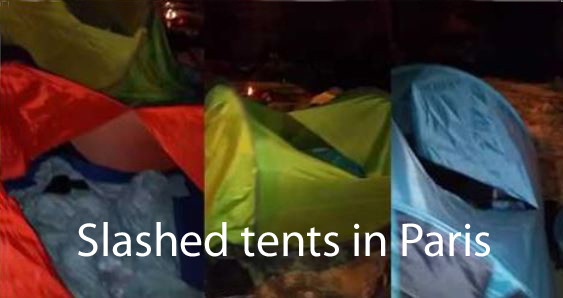I have been missing from this space for a while, busy with other things. The following post may seem like a rather strange holiday greeting and in a blog about economic development. I believe, however, that this is a good time to consider what is going wrong (and right) in the world. I also believe that the migrant problem is ultimately about economic development. I now live and work in France, thus the situation here is at the top of my mind. The same thoughts could be adapted to fit with many other places in the world as well. What do you think?

France is Better than This
Is France turning its back on its history and its values?
Should migrants, including unaccompanied minors, families with children, pregnant women and young men be forced to sleep in the wintry streets of Paris, Montpellier and other French cities while their meager possessions are either destroyed or taken away by the police? Is it right that migrants determined to cross the mountain passes from Italy into France are captured and returned to the border where they are dumped by the road in the snow with no protection?
Is it okay that the so-called “jungle” encampments in Calais and other places, destroyed only a few months ago, are filling again with new arrivals, including many unaccompanied minors. Is it right that they should be continually harassed by local and national authorities? Is it acceptable that France is not even taking in the meager number of refugees it agreed to allow under the EU allocation system? The situation is getting worse, not better. The horror stories become ever more common.
Police officials carrying out these inhumane actions say that they are “only following orders.” Have we not heard that excuse for brutality before? To their credit, there are also stories of police officers who refuse to abuse these people.
Traditional French values are better than this. International law requires better than this. Basic human decency requires better than this. Where is the France that signed onto the Universal Declaration on Human rights (1948), the European Convention of Human Rights (1960) and the Charter of Fundamental Rights of the European Union (2000)? All of these documents affirm the basic rights of all human beings to freedom, dignity and safety.
France, and most other prosperous countries, including and perhaps especially the United States simply must do better. The rights of all countries to protect their borders must be tempered with the rights of all people to seek protection. People who are present in France or any other country, regardless of the circumstances of their arrival, must be treated humanely and provided with the means of a secure life. Leaving them to suffer or perish in the cold streets and icy mountain passes simply cannot be an option. Is such treatment consistent with the principles of Liberté, Egalité, Fraternité. Is it even good for France? But it is not realistic to say that the government should solve the problem.
To be sure, there are also many heroes in the battle to defend the basic human rights of migrants. There are good French citizens and others who provide migrants with the necessities of food, drink and clothing on the cold streets where they are forced to sleep. There are others who take them into their homes to shelter them from the elements. There are still others who take up their legal cases in the face of a hostile bureaucracy. There are many who contribute their time, talents and material goods so that the migrants might suffer less. These are the true heroes, but they are not enough.
But, you ask, what can I do? I am only one person. There are many things that any of us can do. We can communicate directly with government officials to demand change in the regime governing the reception and care of migrants. We can join with political action groups with that objective. We can sign petitions and distribute them widely. But, we cannot expect government to solve the problem without our involvement.
We all need to learn more and talk to our friends and family about the realities of life for refugees in France and elsewhere. Most of us can join in private efforts to provide basic humanitarian assistance to people in need. {Check the internet.} Perhaps, most basic of all, any of us can be actively kind to people who often feel that they have no friends. We can smile. We can share our humanity. If we all did that, this world would be a very different place.
